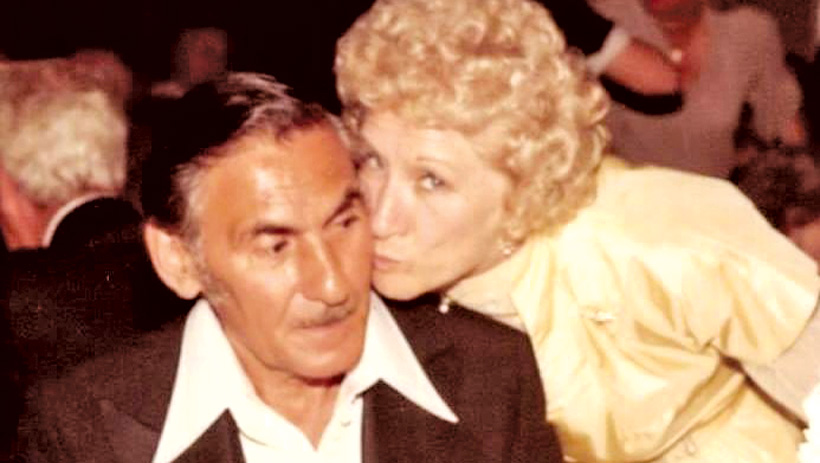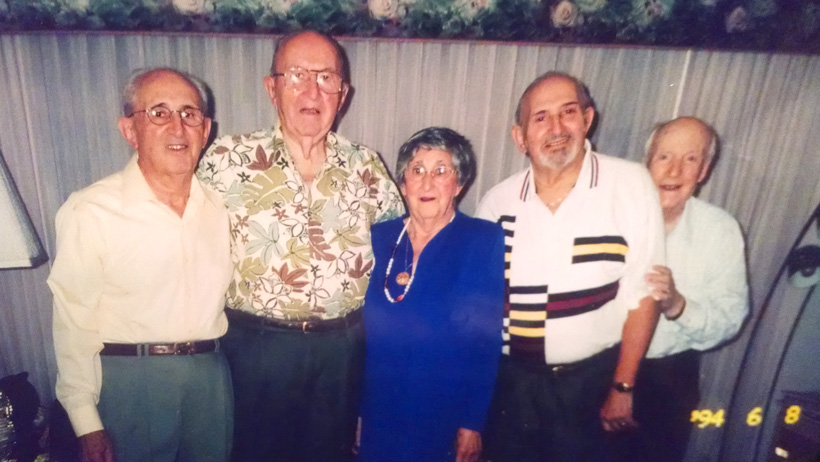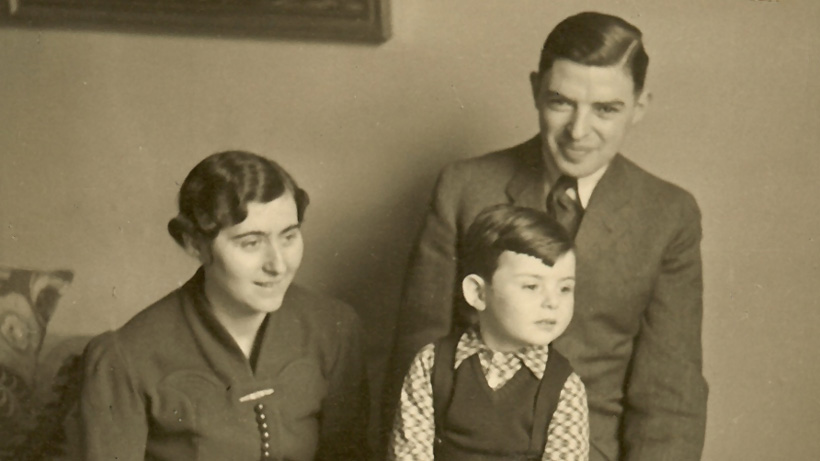If you follow Jewish writers on Twitter, you might have noticed recently that some have put parentheses around their own names. While I wish it were the symbol for a virtual hug, it is actually a protest of a symbol that the Anti-Defamation League now considers hate speech.
When I discovered the triple parentheses on Twitter, I searched for an explanation and found this Mic article. The swastika flag in the article's background made it clear what I was to find. I was shocked and horrified.
The echoing "phenomenon" started in 2014 when a podcast published by the alternative right (also known as alt-right, or White Supremacy or Neo-Nazism) used echo sound effects when saying a Jewish name. The symbolism, apparently, is the damage that Jewish people cause echoes throughout history. In text, it's represented by sets of parentheses.
In their words, our transgressions are, "subversion of the home [and] destruction of the family through mass-media degeneracy, the destruction of the nation through mass immigration, and world Zionism."
The alt-right uses the Echo to call out a Jew or refer to Jews without actually saying the word "Jew." This tactic is often referred to as the internet's version of a yellow star. In fact, the Echo is meant to mock how we pass down the history of the six million lives lost during the Holocaust.
The movement has picked up steam recently because of the number of Jewish writers publishing anti-Donald Trump articles.
Jonathan Weisman, a New York Times editor, wrote the first article exposing the alt-right. He described his first interaction with the movement on Twitter and the anti-Semitic verbal assault that followed, including a meme that replaced the "Arbeit Macht Frei" sign seen at concentration camps with "Machen Amerika Great." In Weisman's words:
"Hello ((Weisman))." @CyberTrump was responding to my recent tweet of an essay by Robert Kagan on the emergence of fascism in the United States.
"Care to explain?" I answered, intuiting that my last name in brackets denoted my Jewish faith.
"What, ho, the vaunted Ashkenazi intelligence, hahaha!" CyberTrump came back. "It's a dog whistle, fool. Belling the cat for my fellow goyim." With the cat belled, the horde was unleashed.
At this point you might be asking, why wasn't this practice exposed sooner?
Punctuation, including triple parentheses, does not come up in search results on Twitter or Google, making it difficult to track Echo usage. Also, a Google Chrome extension called "Coincidence Detector," uploaded by "Altrightmedia," uses a database of Jewish names to put the Echo around them anywhere these names appear on the internet, making it easy for the alt-right to find its targets.
While it's no surprise that anti-Semitism is alive in our country, the vulgarity of the responses to these Jewish writers' anti-Trump articles was so disturbing that I had a few sleepless nights before I could hold enough composure to write this post.
As someone who identifies as a Jewish writer, I couldn't imagine being so frightened to do my job and be Jewish that I felt I had no choice but to buy a gun. However, with anti-Semitism at a fever-pitch unlike I've ever seen in my time using Twitter, it appears that we've reached a dark age of internet trolling.
However, there is some good news. Mic's article exposed the Echo to mainstream media, and Google disabled the "Coincidence Detector." Twitter itself is also aware this is occurring and is acting swiftly to ban alt-right accounts that say anything hateful once they're reported. After Weisman published his article, 30 alt-right accounts were blocked within a week. While this is surely no more than a dent in the anti-Semitism that exists, it is an encouraging sign that Twitter takes this problem seriously.
And now, many Jewish Twitter users (including myself) are using the parentheses in protest and as a way of trolling the alt-right. The more responses I've read to this disturbing trend, the more compelled I felt to use the Echo around my Twitter handle.

While it might seem illogical to use an online version of hate speech on yourself, the best way to raise awareness of an issue that isn't well known is to put it in the public eye and create awareness.
As both a sign of solidarity and a way to confuse the alt-right, many non-Jews have also using the triple parentheses. While no action will rid Twitter of anti-Semitism, it can certainly expose the practice and decrease the attacks. There's also a precedent on social media of allies coming together on Twitter to reclaim symbols or hashtags and turn them into a mockery. This in-turn irritates the alt-right.
If the protest ultimately succeeds, Twitter will update the search functionality to track Echoes, making it easier to spot anti-Semitism and stop those peddling it. So while it may seem counterintuitive to adopt a hate symbol, I hope those of you on Twitter will follow my lead.
In every generation, Jewish people face a defining moment of hatred at some point in their lives. Today, it happens online. Although this kind of hatred may not seem as tangible and bad as iterations of anti-Semitism in decades past, it is a threat that Jews, especially Millennials, need to stand up to.
So join me on Twitter and turn the Echo something that unites (((us))) all.










.jpg)



